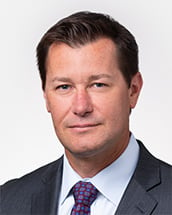In brief
This alert was initially published on December 21, 2023, and has been updated to reflect the Supreme Court’s denial of DOJ’s Petition for Writ of Certiorari on November 12, 2024.
The U.S. Supreme Court has denied appeals from both parties from the December 1, 2023, decision of the U.S. Court of Appeals for the Fourth Circuit reversing DOJ’s criminal conviction of a former executive of an aluminum products manufacturer for failure to state a per se antitrust offense under the Sherman Act. The Fourth Circuit held that the trial court erred in applying the per se rule without considering that the alleged scheme took place within the context of a “dual distribution” relationship among competing bidders, who also maintained a supplier relationship. The Fourth Circuit denied DOJ’s petition for an en banc rehearing. DOJ then sought Supreme Court review of the Fourth Circuit’s decision. Defendants also filed a conditional cross petition to the Supreme Court for review of the constitutionality of the per se rule asking the Supreme Court to hold it altogether unconstitutional. The Supreme Court denied the requests.1 As a result, the Fourth Circuit’s decision remains in effect, and it will constrain the DOJ’s approach in cases involving dual distribution in the future.
Key takeaways
- The decision will complicate criminal antitrust prosecutions in the Fourth Circuit, and potentially other circuits, involving agreements among competitors that have a “dual distribution” relationship (i.e., competitors that contract with each other to distribute or source products or services). In this case, the Fourth Circuit concluded that the per se rule did not apply to the alleged bid-rigging agreement because the arrangement also related to the parties’ vertical supply relationship. Specifically, in future indictments in the Fourth Circuit, DOJ will likely avoid alleging conspiracies that involve “hybrid” vertical and horizontal relationships between defendants analogous to the supplier-distributor relationship that formed the basis for the bid-rigging allegation in this case.
- DOJ has made clear in its briefing to the Fourth Circuit and its petition for Supreme Court review that they believe the Fourth Circuit opinion is a departure from the precedent of the Supreme Court and other courts, which have found per se antitrust violations despite the presence of vertical supply relationships between co-conspirators.
- It is an open question whether other courts will follow the Fourth Circuit’s decision. In bid-rigging cases, economic analysis is usually not considered by the court because it is a per se crime. However, the Fourth Circuit’s approach requires the trial court to consider the overall economic relationships among the parties. Now that the Supreme Court has declined to review this approach, defendants will invoke the decision to support more narrow applications of the per se rule. This may result in further divergences between circuit courts as to what extent they will consider the defendants’ economic relationship.
- According to the Fourth Circuit, the trial court erred when it categorically ignored academic analysis of the economic effects associated with the restraint that DOJ alleged in the indictment. This opinion thus supports defendants’ arguments that trial courts should first consider the parties’ relationships, commercial realities, and economic evidence demonstrating a lack of anticompetitive effects before applying the per se.
- DOJ is expected to continue to litigate this issue and criminally prosecute bid-rigging where vertical relationships exist. However, in cases where the alleged co-conspirators have a “hybrid” vertical and horizontal relationship DOJ may rely on fraud theories of liability. This approach would enable DOJ to address anticompetitive behavior without needing to rely on the per se rule.
In more detail
In October 2020, a grand jury indicted aluminum manufacturer (“Contech“) and its former sales executive on one count of conspiring to restrain trade under the Sherman Act and five counts of mail and wire fraud.
The indictment alleged that Contech and another manufacturer (“Pomona Pipe“) conspired to rig bids for North Carolina Department of Transportation (NCDOT) contracts. DOJ alleged that the two aluminum manufacturers frequently submitted bids for the same NCDOT contracts. If Contech won a bid, it would use Pomona Pipe for services; if Pomona Pipe won, it would source aluminum from Contech. DOJ alleged that the situation changed in 2009 when the executive began coordinating bids to ensure Pomona Pipe always submitted lower bids.
Before trial, defendants filed a joint motion arguing that the court should not apply the per se rule, which deems certain limited categories of “horizontal” agreements between competitors (e.g., price-fixing, bid-rigging, and market allocations) to be unlawful restraints of trade without any consideration as to the actual competitive effects or business justifications associated with the arrangement.2 The trial court denied defendants’ motion, and the case went to trial resulting in the executive’s conviction on all counts.
The executive appealed his convictions on several grounds, including on the ground that the trial court erred in denying his pretrial motion to dismiss the antitrust count for failing to state a per se antitrust violation. On appeal, the Fourth Circuit found that the per se rule did not apply to agreements between the alleged co-conspirators in this case because they maintained an active supply relationship in fulfilling successfully bid-upon contracts. Against the backdrop of the parties’ “dual distribution” relationship, the court determined that the bidding scheme operated as a “hybrid” restraint with both horizontal and vertical components. The Fourth Circuit also noted a presumption in favor of the rule of reason in cases alleging per se violations where parties maintain a vertical relationship. This presumption may be overcome only with “demonstrable economic effect” showing that the agreement would invariably harm competition.3
Based on this holding, the court determined that the trial court erred in denying defendant’s motion to dismiss the antitrust count without first considering the academic expert analysis addressing the economic effects of the alleged restraint. The Fourth Circuit then went on to explain that economic evidence presented by the defendants demonstrated that the alleged scheme would not have invariably anticompetitive effects. To the contrary, the court concluded that even if the competition between the manufacturer and supplier was eliminated by Contech submitting intentionally losing bids in favor of Pomona Pipe, the alleged scheme gave rise to potential procompetitive effects on inter-brand competition among the remaining bidding aluminum manufacturers. Accordingly, the court found that these potential procompetitive effects showed that the alleged restraint of trade did not invariably result in anticompetitive harm, and the per se rule did not apply.
DOJ petitioned to rehear the matter en banc, which was denied. DOJ then filed a Petition for Writ of Certiorari, which the Supreme Court denied on November 12, 2024.
Future DOJ Bid-Rigging Prosecutions
With the Fourth Circuit denying rehearing en banc and the Supreme Court refusing to review the case, the Fourth Circuit’s opinion is now binding law within the circuit. This means that the DOJ is precluded from basing any alleged per se violation of the Sherman Act by parties with a “hybrid” dual distribution relationship in future indictments filed in the Fourth Circuit.
Based on the positions articulated in its briefs in this case, DOJ will not be deterred from prosecuting bid-rigging violations. DOJ attorneys simply may have to reformulate their theory of liability in any case brought in the Fourth Circuit or initiate their prosecutions in venues outside of the Fourth Circuit when feasible. DOJ may even seek out an opportunity to pursue a Sherman Act prosecution against dual distribution parties outside of the Fourth Circuit in the hopes of obtaining a different result and creating a split with the Fourth Circuit, which would require a Supreme Court decision for a resolution.
It remains to be seen whether DOJ will continue to prosecute currently pending cases in the Fourth Circuit that involve so-called “hybrid” vertical and horizontal supply relationships. In future prosecutions involving bid-rigging agreements between co-conspirators who maintain a vertical supply or dual-distribution agreement, DOJ may prosecute such schemes by charging them under federal mail and wire fraud statutes (not the Sherman Act). By charging bid-rigging conduct under federal fraud statutes, DOJ can avoid economic considerations altogether without regard to whether the per se rule applies. Instead, DOJ could secure convictions by relying on evidence of the defendants’ agreement and their intent to deceive or defraud third parties, for example, by making false certifications during the bidding process. Indeed, DOJ has charged per se antitrust violations in conjunction with mail and wire fraud in many of its Procurement Collusion Strike Force cases, including the prosecution that resulted in this Fourth Circuit opinion, in which all the defendant’s fraud convictions were affirmed. DOJ will likely utilize this charging strategy rather than charging bid-rigging exclusively under the Sherman Act.
We will continue to monitor the latest developments in this area.
1 United States v. Brewbaker, No. 23-1365, (U. S. Nov. 12, 2024); United States v. Brewbaker, No. 22-4544, (4th Cir. Dec. 1, 2023).
2 DOJ in its prosecutorial discretion has reserved criminal antitrust enforcement to illegal activity subject to the per se rule.
3 Under the rule of reason, a court looks at the parties’ market power, the overall competitive effects associated with the restraint, and any procompetitive business justifications offered by defendants in determining whether an agreement unlawfully “restrains” trade.






